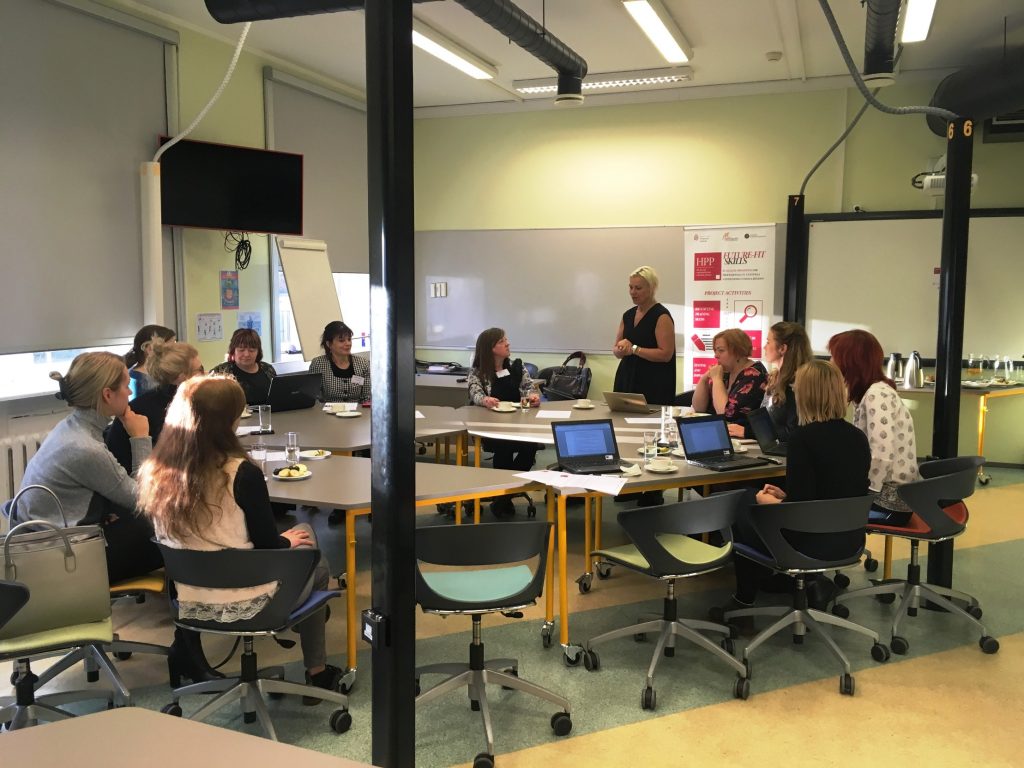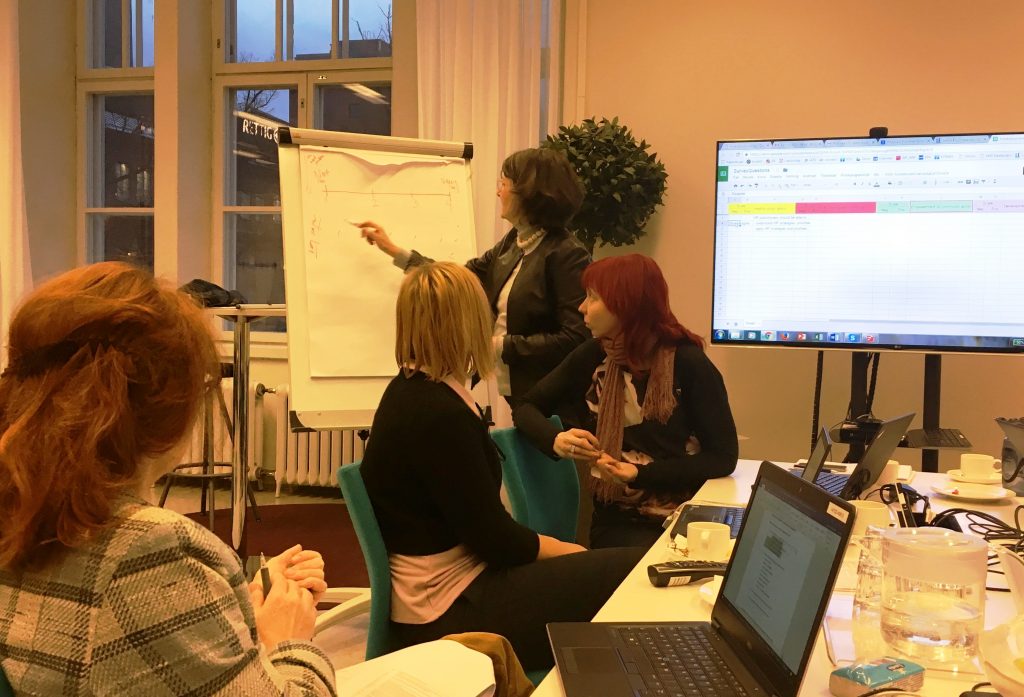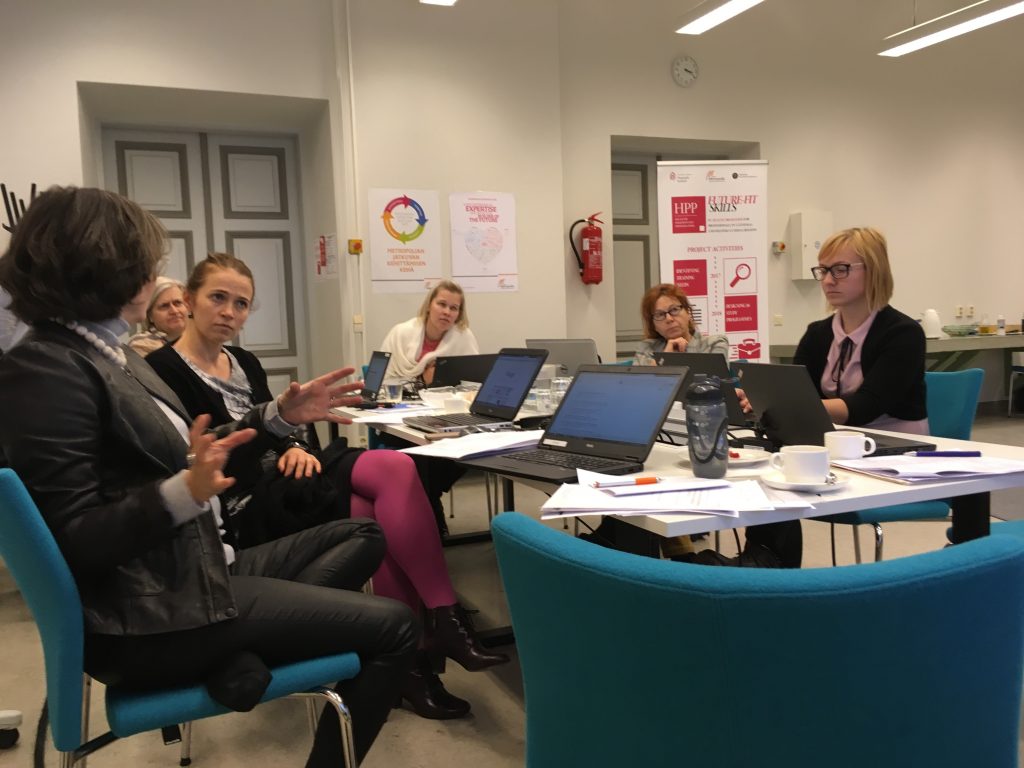 At the end of November and the beginning of December, Focus Groups came together in the University of Tallinn and the Metropolia University of Applied Sciences to discuss the future direction of Health Promotion and to set a precise course for the upcoming survey, which is scheduled to start in February 2017.
At the end of November and the beginning of December, Focus Groups came together in the University of Tallinn and the Metropolia University of Applied Sciences to discuss the future direction of Health Promotion and to set a precise course for the upcoming survey, which is scheduled to start in February 2017.
There were in total 4 meetings with the participation of:
In Estonia:
- Estonian e-health Foundation,
- Lääne County Government,
- Ministry of Social Affairs,
- SA Läänemaa Hospital,
- National Institute for Health Development;
- Jõgeva County Government,
- Praxis.
In Finland:
- National Institute for Health and Welfare,
- Hospital District of Helsinki and Uusimaa,
- Ministry of Social Affairs and Health,
- Union of Health and Social Care Professionals,
- Vantaa local government,
- Finnish Federation for Social Affairs and Health,
- Metropolia University of Applied Sciences – Student representation.
 The future vision and discussion can in general be concluded based on the five action ares of the Ottawa Charter:
The future vision and discussion can in general be concluded based on the five action ares of the Ottawa Charter:
a. Building healthy public policy
Estonia: integration between different fields, reorganising services, legislation, focus on advocates and policy makers.
Finland: priority on cross-sectoral work and “out of the box” thinking focusing on active HiAP; accessible database systems needed with updated facts supporting daily HP; electronic welfare report as a tool for planning, developing and assessing HP on different levels.
b. Creating supportive environments
Estonia: new health centres, considering health promoting solutions in urban planning, considering well-being in each field.
Finland: process-based measures, indicators supporting daily HP practices, not just indicators related to the final results;
HiAP covering also non-health sectors, e.g. civil engineering, public transport, different activities.
c. Strengthening community action
Estonia: less local governments; strategical health promotion specialists working in local governments who are part of the comprehensive management of the community.
Finland: HP information available for all, creating trust through transparency, concrete concepts for advocating change e.g. through the concept “a non-smoker to the operation room”. All professionals are using the same language; integrative community actions supported by a third sector, peer-support, hobby and leisure communities which offer experiences of being appreciated and dignified. Raising the will for managing one’s own life, empowerment.
d. Developing personal skills
Estonia: better awareness of both employers and employees, personal responsibility for making choices that affect health, raising awareness through education (starting from kindergarten and ending with higher education and workplace). Better communication, negotiation skills.
Finland: citizens as actors and the subjects of services, citizen-oriented HP information; raising awareness and self-efficacy through education starting from kindergarten; professionals have good skills in health literacy, good marketing, communication, negotiation skills; evidence based concept at all levels.
e. Reorienting health services
Estonia: a system that supports cooperation, unites, and contributes to health promotion and well-being.
Finland: life-long preventive services and measures, e.g. maternity and family clinics, schools, student health care as key touch points for universal prevention; segmented services for the people in weak position; from fragmented towards a more holistic approach, good governance.
After the Focus Groups, our team met in Helsinki to sum up the discussions.


We thank all participants and we are looking forward to our follow-up meeting scheduled in spring!



